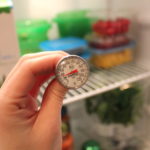Breast cancer is a dangerous form of cancer with a high incidence rate among women. Men also have cases of breast cancer, but the rate is lower. Cancer develops when there are abnormal changes in cells that produce tumors and cells that divide and do not die on their own like normal cells, so they invade and gradually cause metastasis.
According to the response of Dr. Huynh Ba Tan, a breast specialist at Tam Anh General Hospital in Ho Chi Minh City, there is no correlation between breast size and breast cancer.

A large breast size can cause women to experience chest pain, shoulder and neck fatigue, especially when wearing improperly fitted bras that do not provide enough support. However, this chest discomfort is not a cause of cancer.
Having large breasts can make it difficult for women to perform self-exams at home. The thick layer of fatty tissue can conceal signs of a mass when women perform self-exams, making it difficult to detect abnormalities early compared to small breasts. When taking mammography, the thick breast tissue appears as a dense white area on the mammogram, making it difficult to detect lesions on the breast.
Factors that increase the risk of breast cancer for women to remember
One of the important risk factors leading to breast cancer is dense breast tissue. Breast tissue consists of glands, ducts, connective tissue, and fatty tissue. Women with dense breast tissue have more connective tissue (supportive fibrous tissue that helps keep other tissues in place) than fatty tissue. Women with dense breast tissue over 75% have a 4-6 times higher risk of developing breast cancer compared to other women.
Other factors that increase the risk of breast cancer include gender (female), older age, family history, gene mutations such as BRCA1 and BRCA2, obesity, sedentary lifestyle, alcohol consumption, early puberty, late menopause, which affect hormones that increase the risk of poor health and breast cancer.

Postmenopausal women who are obese also have an increased risk of breast cancer due to the conversion of androgen to estrogen from the adrenal glands. Estrogen is closely related to the development of breast cancer. Breast size is therefore not an indicator of the risk of breast cancer, but regardless of breast size, women should be aware of self-exams at home and undergo regular screenings to detect the disease in a timely manner. Maintaining a healthy weight, regular exercise, a balanced diet, and a healthy lifestyle help improve overall health and reduce the risk of breast cancer. It is especially important to live optimistically and happily to enhance the immune system and prevent the disease.
Unveiling the Miraculous Benefits of Mushrooms
From the savory flavor they offer in dishes to their vast array of health benefits, mushrooms are a major force in the culinary world. Not only are they known as a delicious ingredient in countless recipes, but their impressive benefits can help to fight obesity, high blood pressure, and even cancer prevention.




































